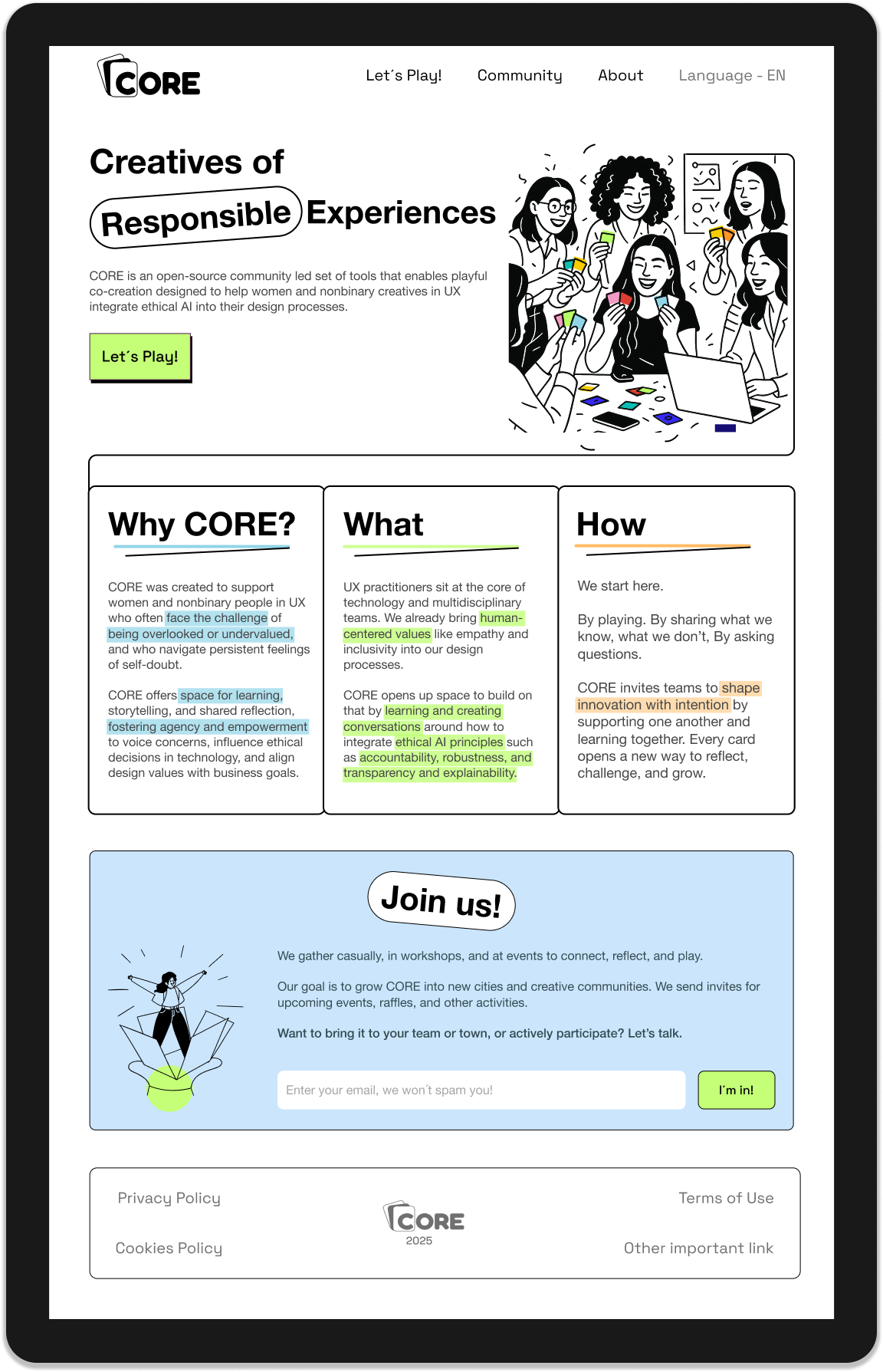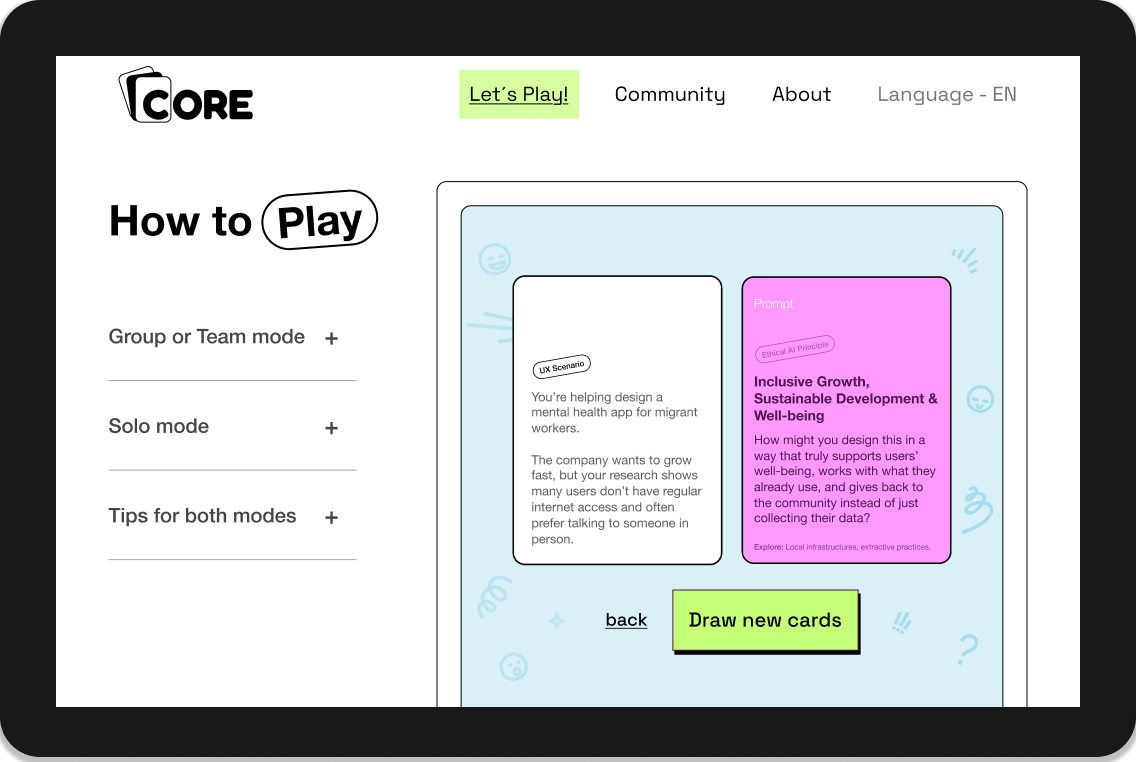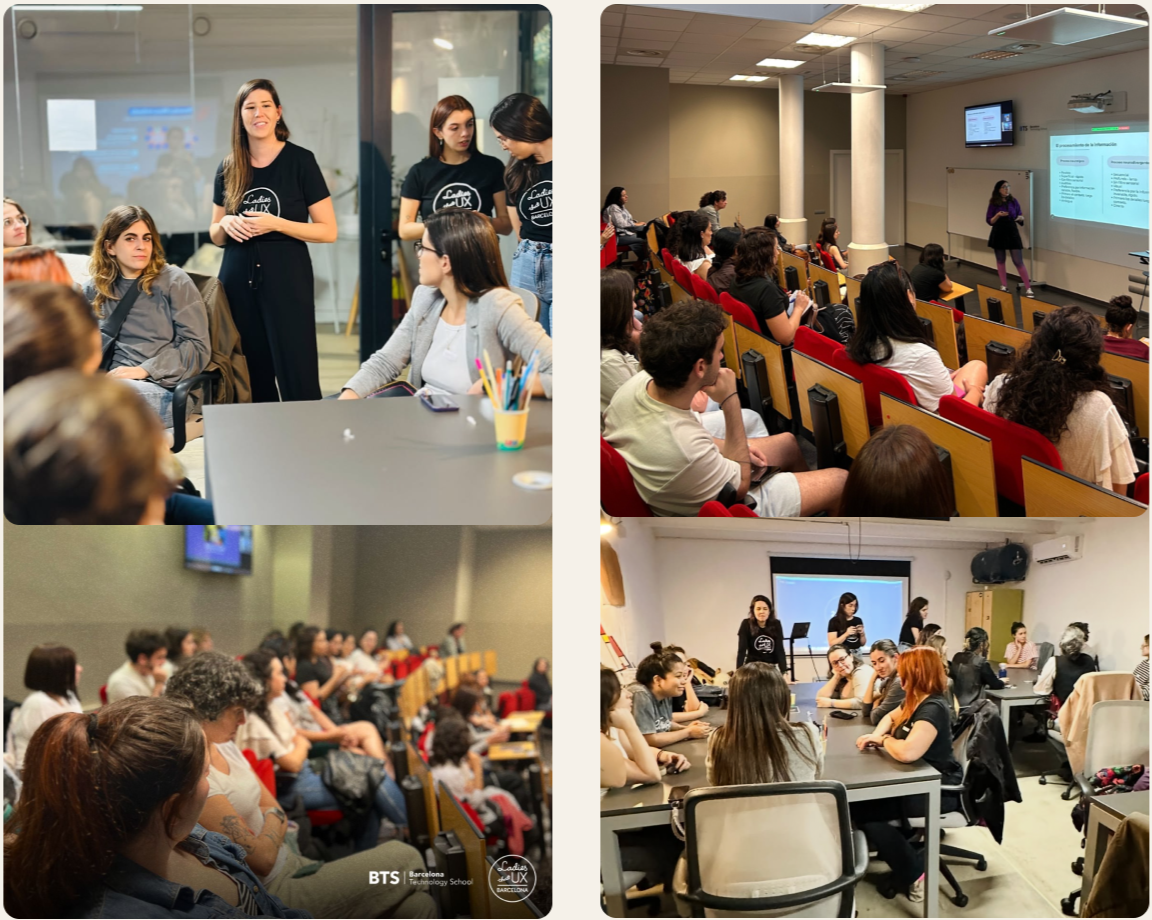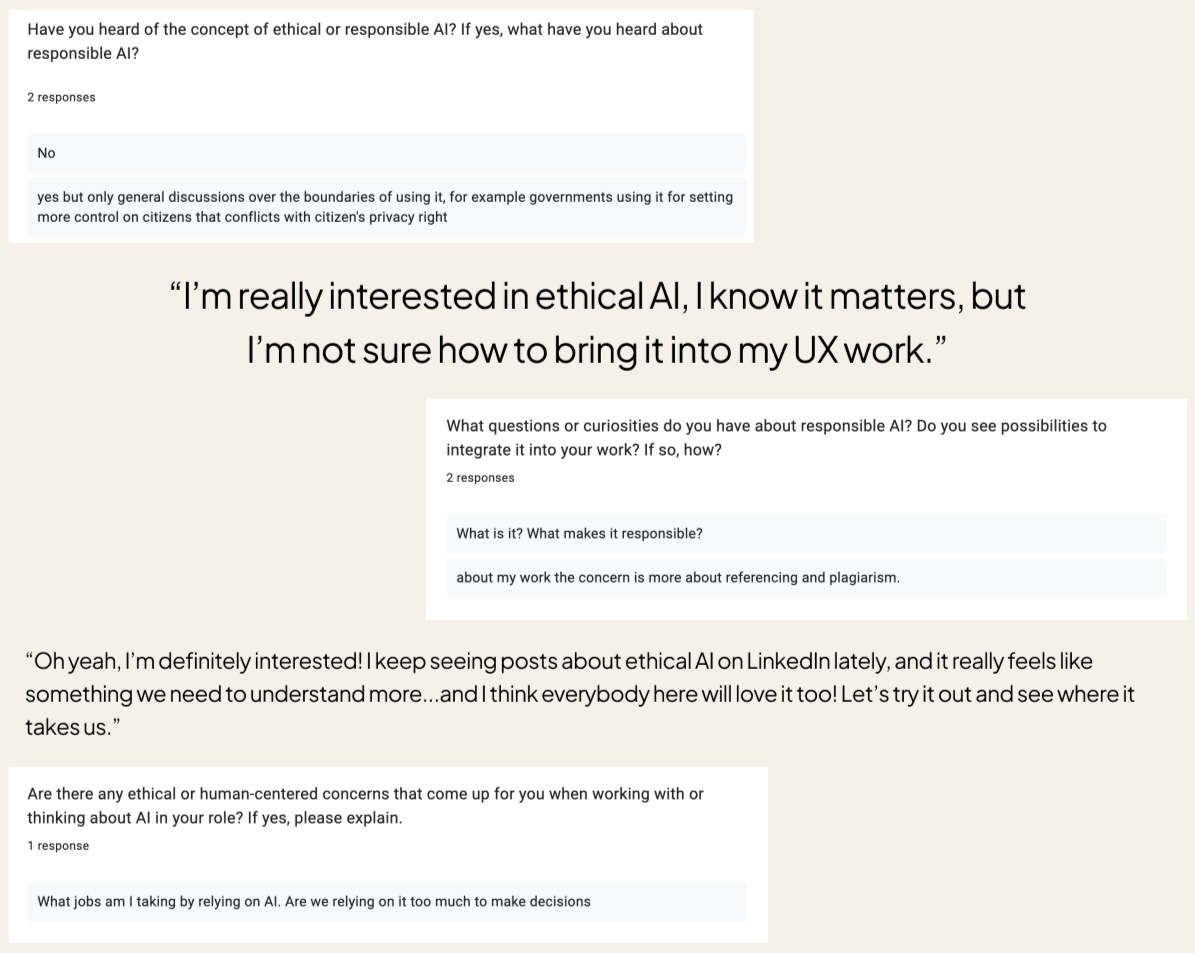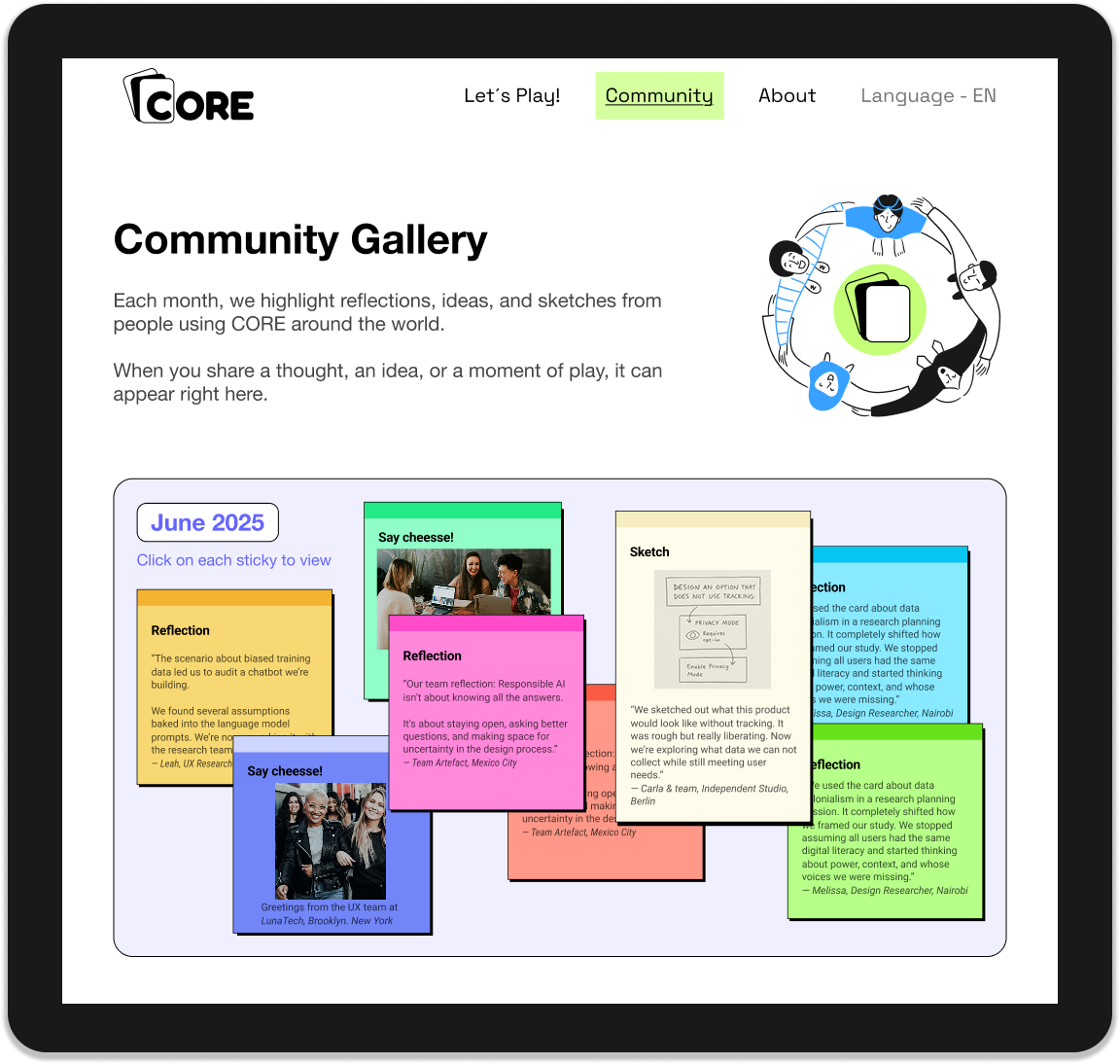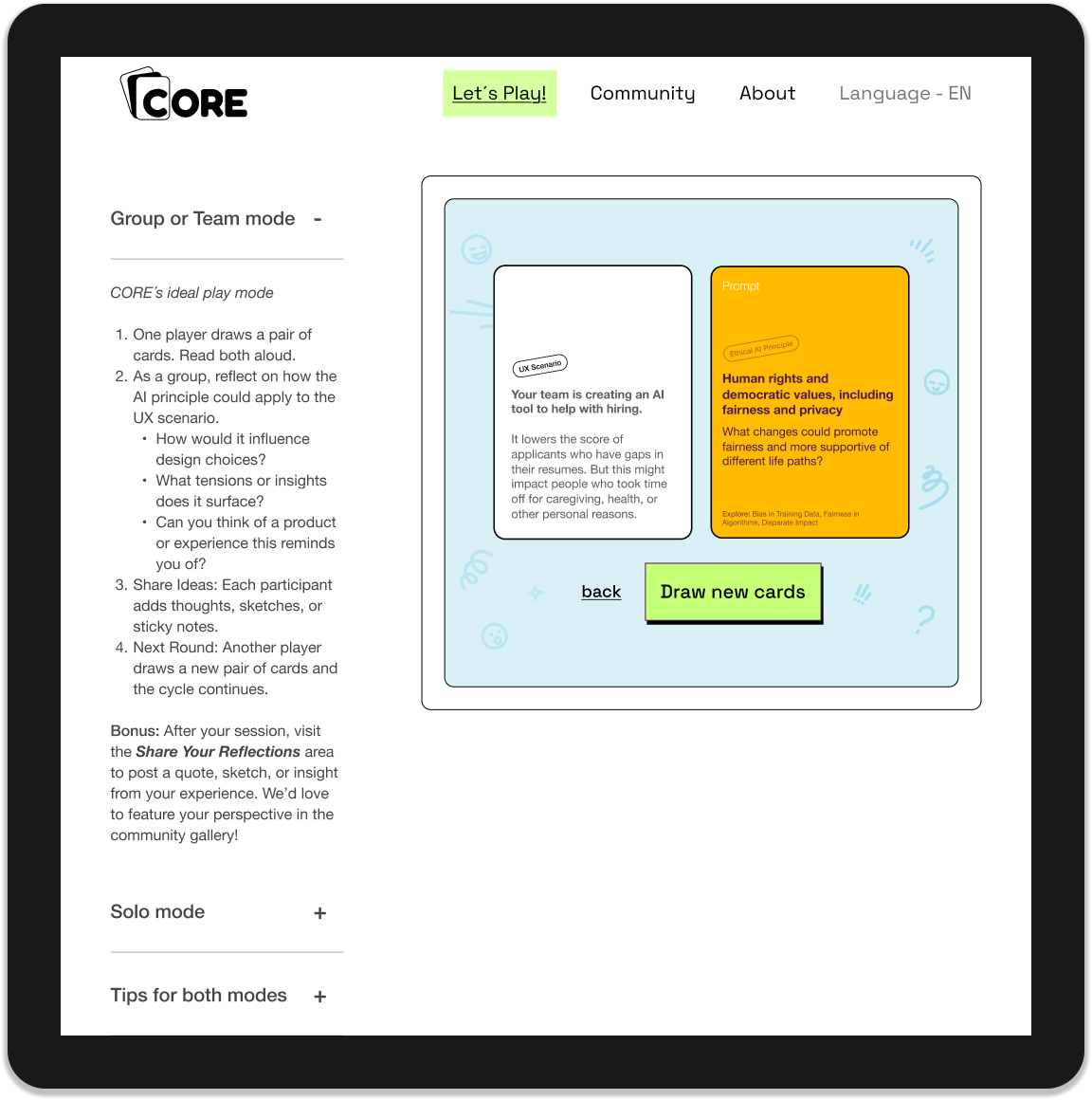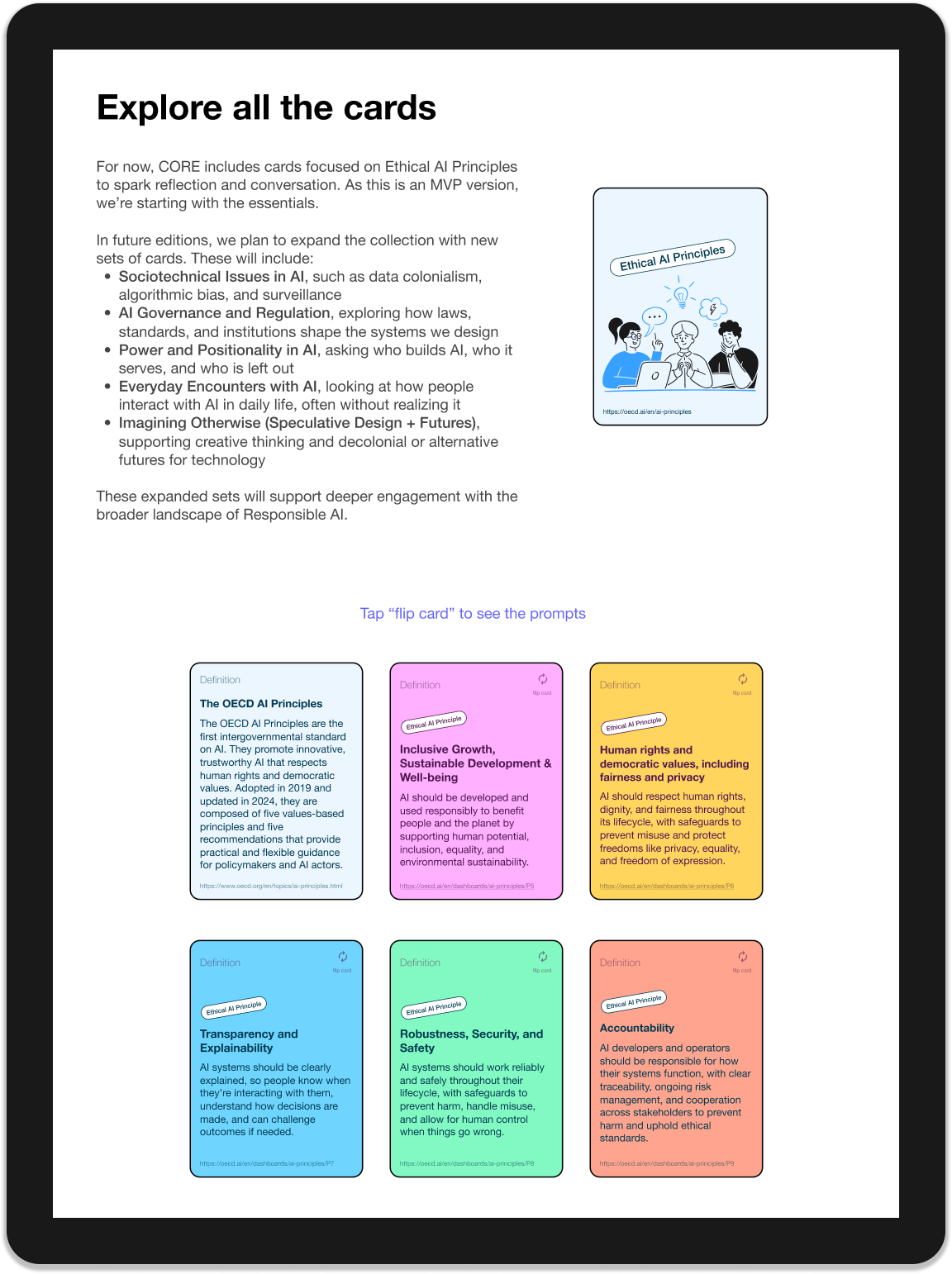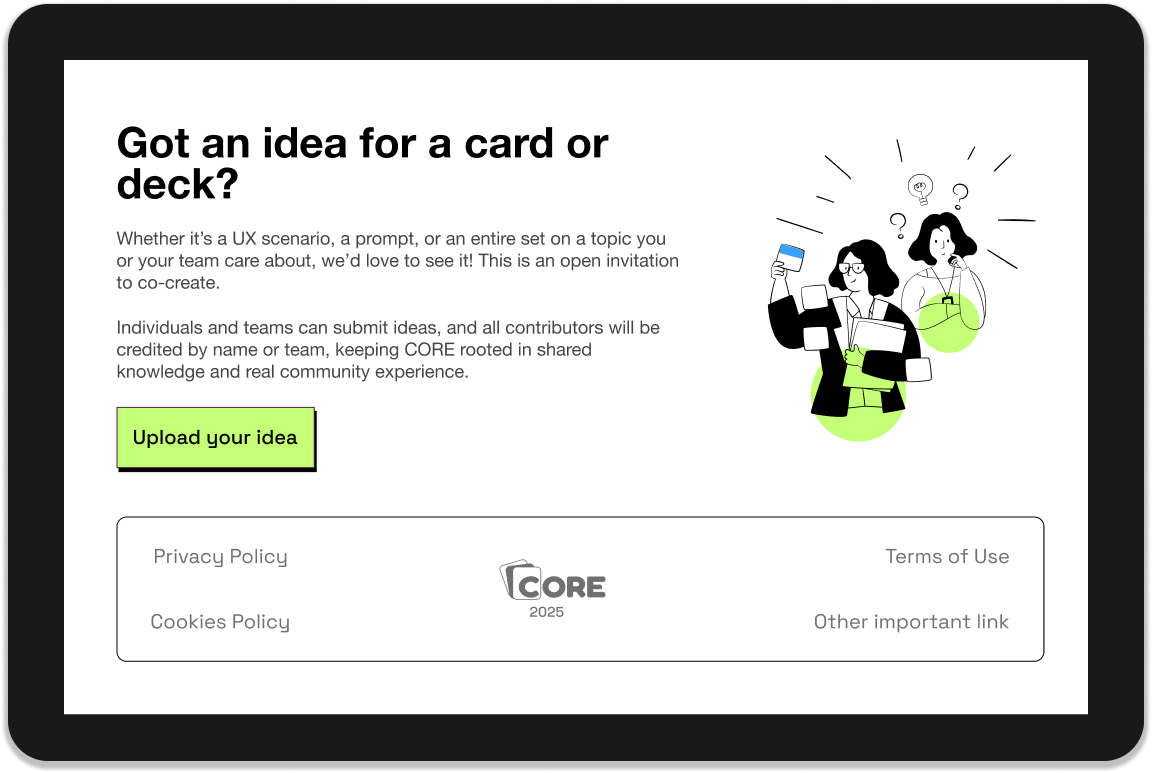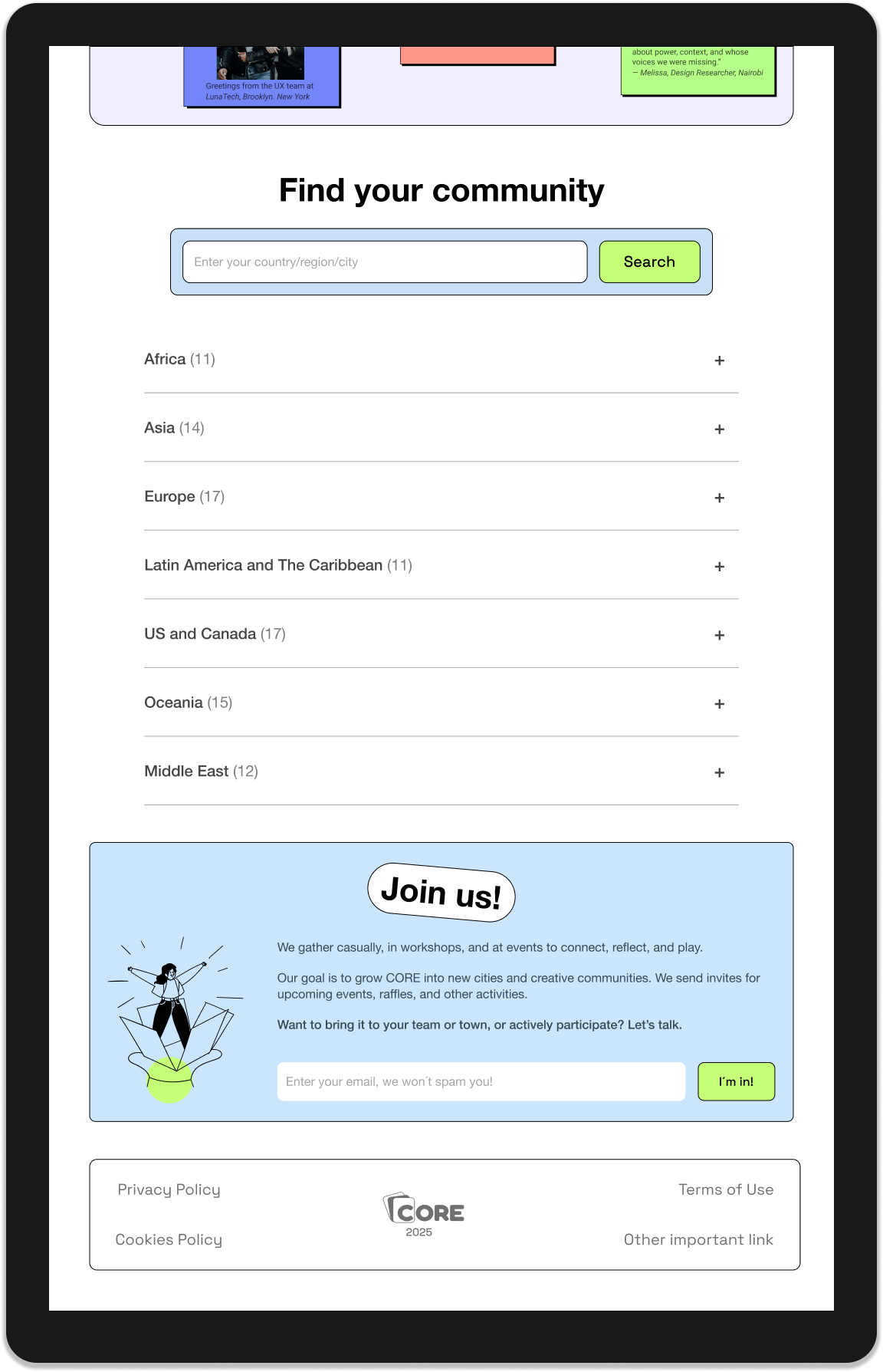Overview
CREATIVES OF RESPONSIBLE EXPERIENCES
An open-source community-led set of tools that enables playful co-creation, designed to help women and non-binary creatives in UX integrate ethical AI into their design processes.
This project was created during the span of two and a half months: May and June 2025, as the final project for my Master's in Design for Responsible AI.
Collective Agency
THE PURPOSE
I created CORE, currently an MVP, with the vision of growing into a platform that offers playful tools for women and nonbinary creatives to engage with ethical AI, supported by their teams and a global community.
CORE enables collective agency through shared experiences. It invites women and non-binary UX professionals to reflect, learn, and act together, centering co-creation and mutual support.
I believe that by learning in teams, participants build the confidence and skills to influence ethical decisions at work, shaping digital products that serve people and creating eco-conscious futures.
A question I began asking myself a few months ago, while pursuing my master’s program, was: How can we make a culture of responsible innovation feel both possible and even fun? Especially in the everyday UX work I do with my colleagues.
Collective Learning
THE HOW
For this MVP, I created a first set of cards, just one of the many tools CORE will offer to begin integrating ethical AI into UX practice.
This set of cards is a starting point to help creative teams build language around ethical tech, reflect and strengthen their storytelling, and return to their work empowered to speak up, contribute, and lead these conversations with confidence.
The Process
Hypothesis
If women and nonbinary creatives in UX already design with human-centered values, then giving them practical tools supported by a community will help them integrate ethical AI into their workflows and take an active role in shaping responsible technology.
Rooted in Experience
THE PROBLEM
This work is rooted in my own experience and in the stories I’ve seen play out across creative tech teams.
Women and nonbinary people in UX are often at the center of building digital products but still find themselves overlooked, undervalued, or left out of key conversations. We help design the experience, yet are often excluded from the very decisions and conversations that shape it, especially when it comes to ethics.
Data
THE PROBLEM
In the U.S., women in tech earn about 71 cents for every dollar earned by men with the same education. In Europe, the unadjusted gender pay gap is 25%. Women are consistently offered lower salaries at hiring and hold only 21% of executive roles in tech.
38% of women in tech are actively job-seeking, compared to 30% of men—driven largely by pay dissatisfaction.
Nonbinary professionals are even more invisible, as most companies don’t track or report their data.
Collaborative Fluency
THE HOW
From the opportunity (above), I created CORE, designed for teams to engage in open dialogue, explore responsible AI concepts, and begin to build ethical awareness together. From the start, I emphasize the instructions of the game that CORE’s ideal mode is group play, although solo play for self-study also exists.
The cards are played in pairs: one presents a UX scenario, the other offers a prompt inspired by an OECD ethical AI principle. Some also include expanded terms to explore topics, such as bias in training data and fairness in algorithms, sparking deeper exploration.
The instructions also include guiding questions to help the team discuss design choices and tensions. After each session, participants are invited to share a quote, sketch, or insight in the Share Your Reflections section. Contributions are featured in the community gallery page, highlighting the voices, ideas, and creative moments that emerge through play.
Collaborative Growth
PRESENT AND FUTURE
We grow, expanding the decks, deepening the dialogue, and shaping ethical AI in unity.
As CORE evolves, new decks, for example, the ones mentioned here, will be co-created with the community to explore broader ethical and social dimensions of AI, supporting ongoing learning and conversation in UX teams.
Built in Community
OPEN SOURCE AND CO-CREATION
On the website, there’s a section called ‘Got an idea for a card or deck?’ where individuals or teams can submit their ideas, whether it’s a new UX scenario, a prompt, or an entire set focused on a topic they care about. The idea is to have all contributors acknowledged with their name or their team’s name and will be featured on the cards they help shape. It’s a way to recognize shared knowledge and keep CORE grounded in community experience.
Visible Stories
OPEN SOURCE AND CO-CREATION
To celebrate CORE’s focus on team learning and community-building, participants are invited to share sketches, ideas, photos, or quotes from their session to be featured in our community gallery, updated monthly to reflect how people are learning, connecting, and growing together.
Global Connection
THE HOW
Just below the Community Gallery, I introduce this section called Find Your Community, where creatives can connect with chapters around the world. The goal is to help women and nonbinary UXers connect across cities, countries, and cultures, bringing ethical AI conversations into more teams, more spaces, and more everyday practice.
Next Steps
I’m currently working on the UI of the card game and digital platform, while also reaching out to communities and teams interested in testing CORE. Let’s play, learn, and shape the future of responsible tech together!
Community Approach
THE METHODOLOGY - Informal Interviews
With the hypothesis in mind, and driven by my eagerness to start advocating for ethical AI as someone already shaping technology. I began having interviews as conversations with coworkers, formed a small sub-team within my innovation team focused on Responsible AI, and held 1:1s with other creatives.
I also joined group discussions at tech events for women and nonbinary people, like those organized by Ladies that UX (Barcelona chapter) and in other women-led creative communities I belong to.
THE METHODOLOGY - Surveys
To deepen my understanding, I shared my hypothesis in one-on-one conversations and also distributed a survey across communities I’m actively part of. A few key insights emerged:
Women and nonbinary creatives are genuinely interested in ethical AI. Many mentioned they’ve come across it on LinkedIn or heard about it from friends in the industry or colleagues, but it still feels too new, abstract, and hard to connect with their day-to-day UX work.
Intention Shapes Practice
THE OPPORTUNITY
By combining the lived realities of women and non-binary UX practitioners, their need to be valued, with their growing interest in ethical AI, and my own drive to make responsible tech possible, I saw a space full of potential.
Yes, the challenges are real, but so is our influence.
1. UX already shapes how tech is built and used and who it serves
2. Visibility isn’t optional. It’s a condition for equity
AI is here to stay. The sooner we adopt ethical AI practices, the more we can lead innovation that truly serves people and the planet.
The Outcome
Transformative Value
THE IMPACT
CORE is a catalyst, it…
… BUILDS ETHICAL AI AWARENESS across UX teams
… AMPLIFIES GENDER-INCLUSIVE VALUES in decision-making
… STRENGTHENS TEAM CULTURE through reflection and dialogue
… MAKES A CULTURE OF RESPONSIBLE INNOVATION feel possible… and fun

